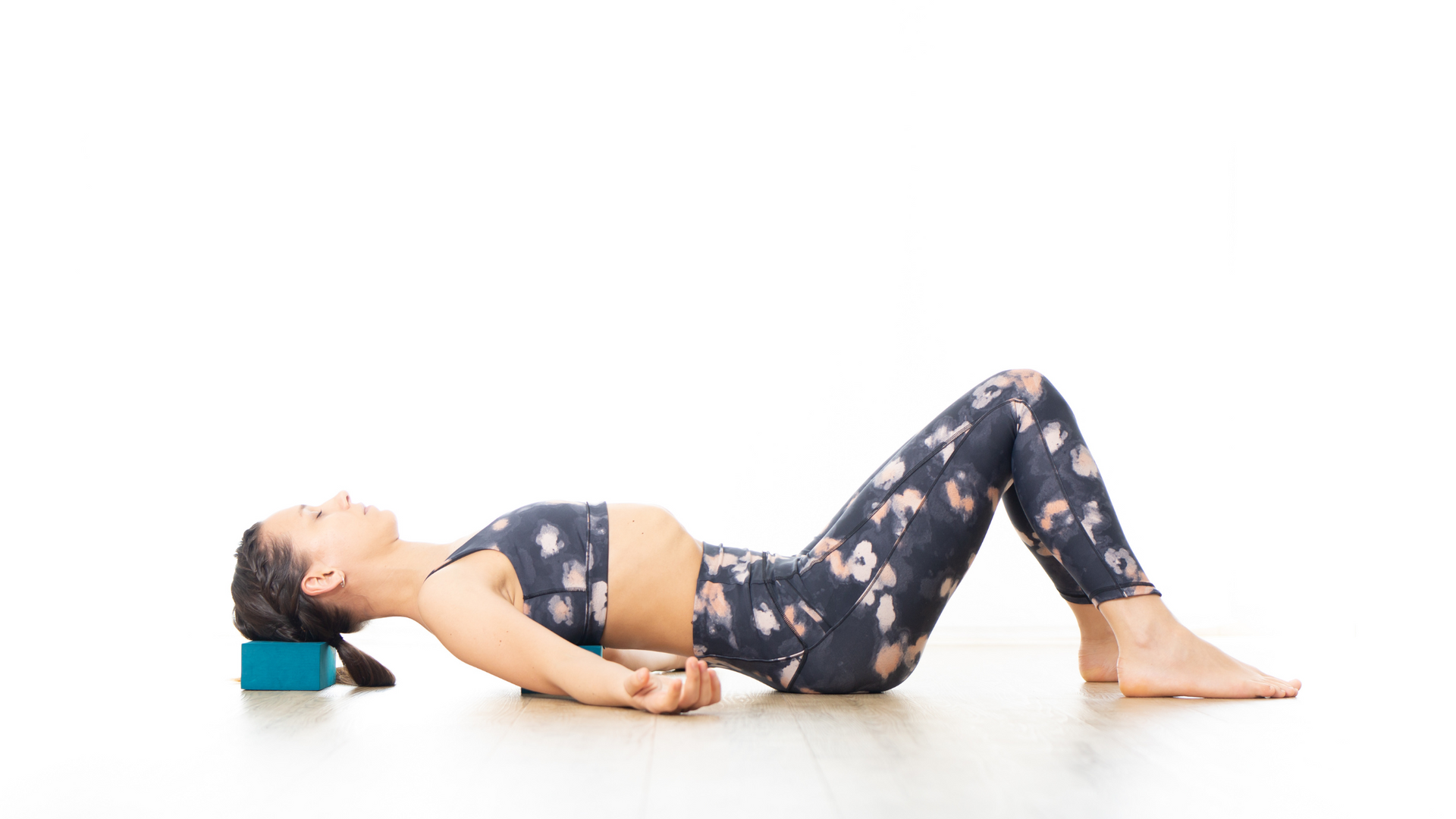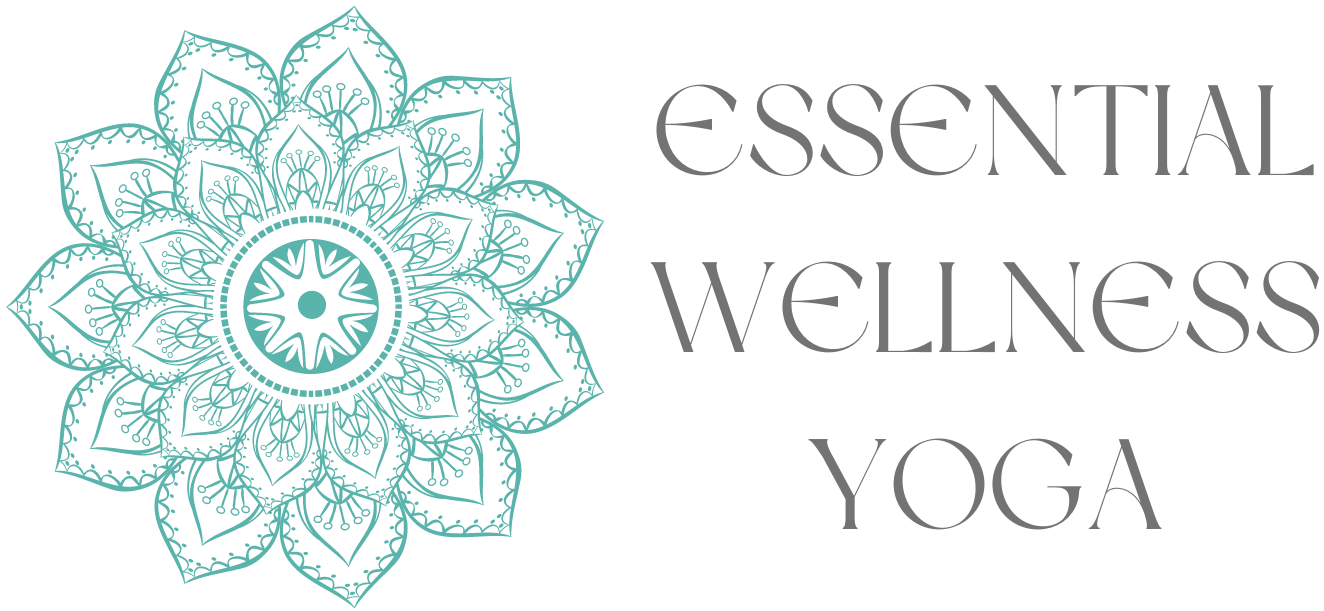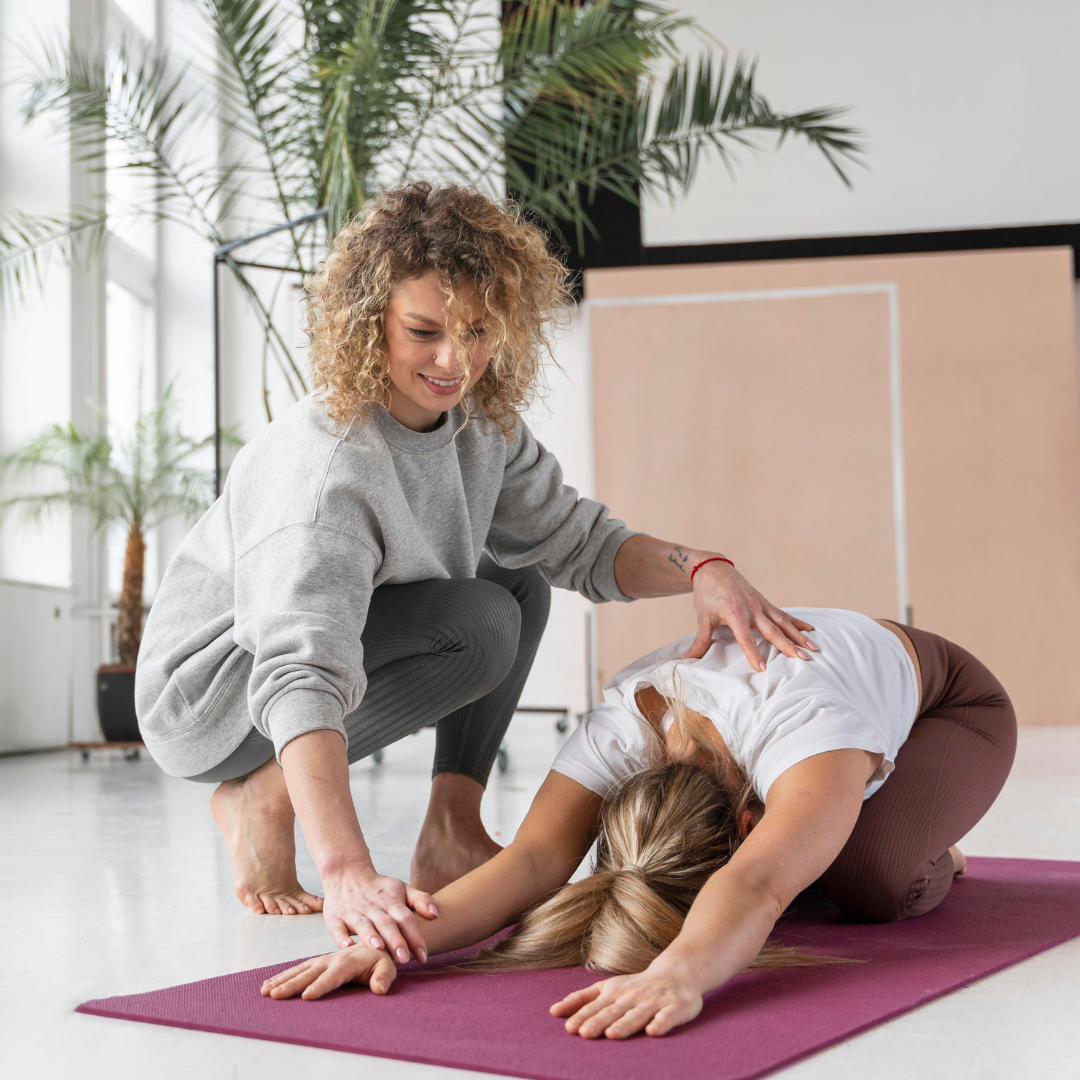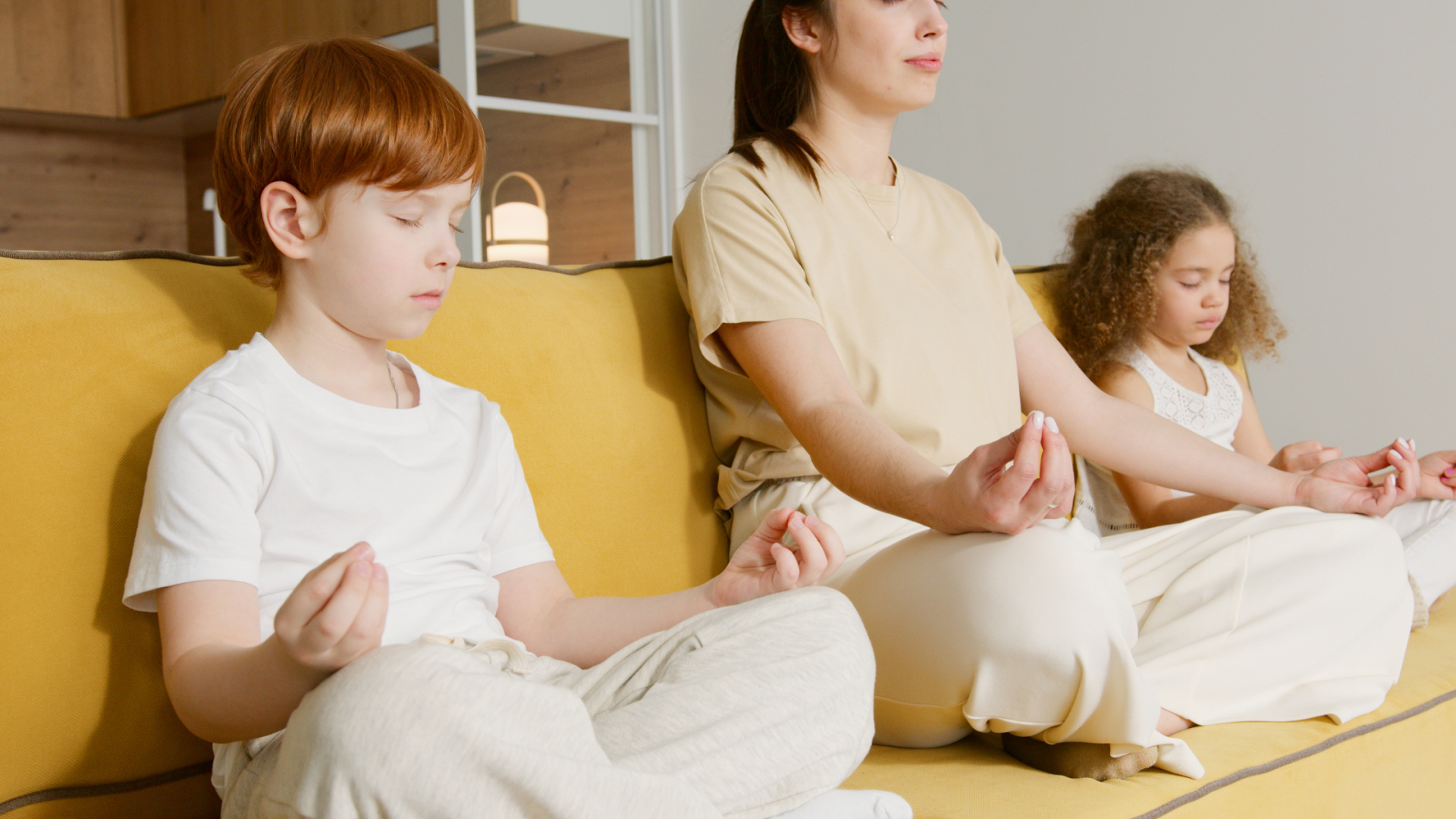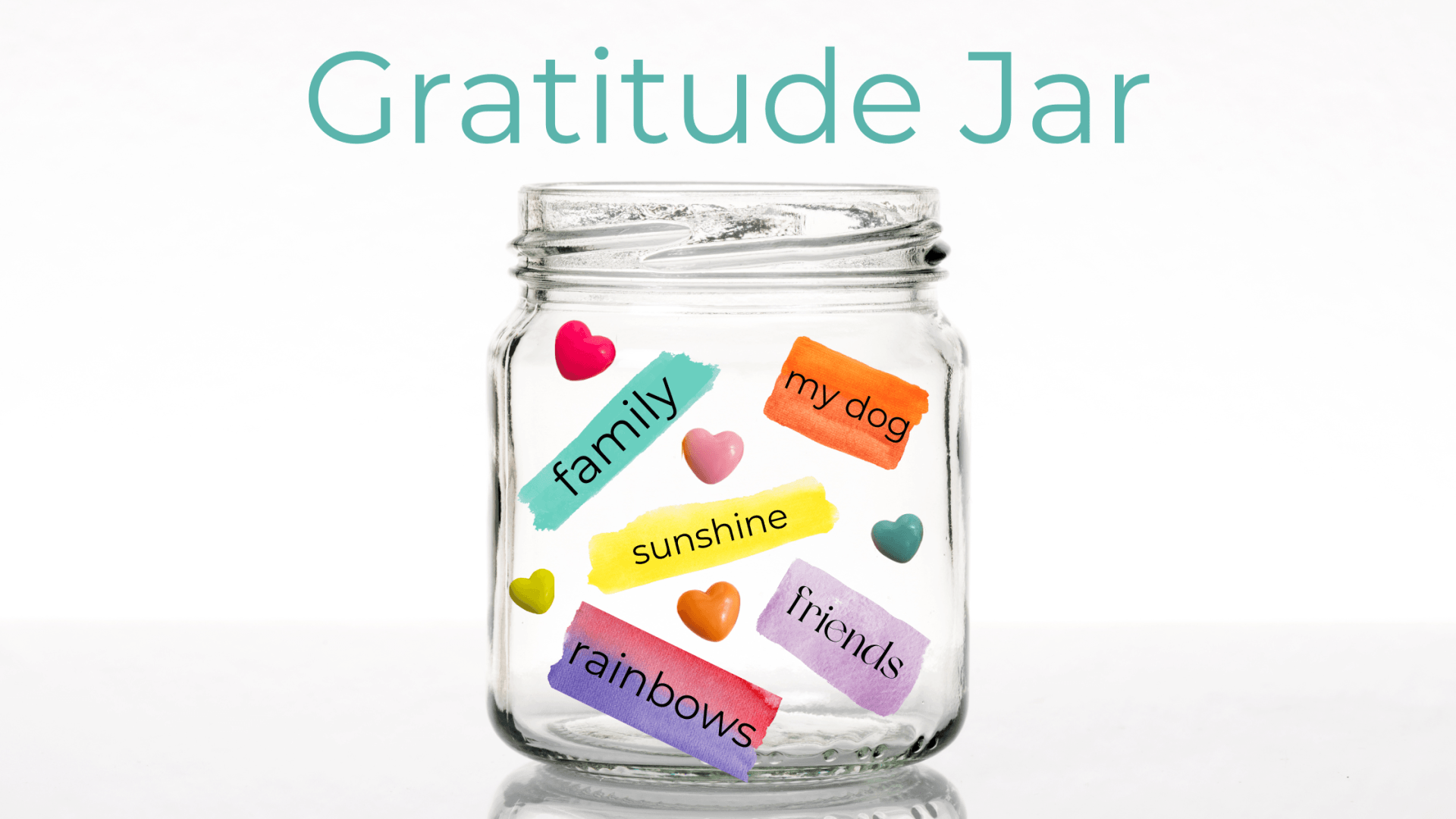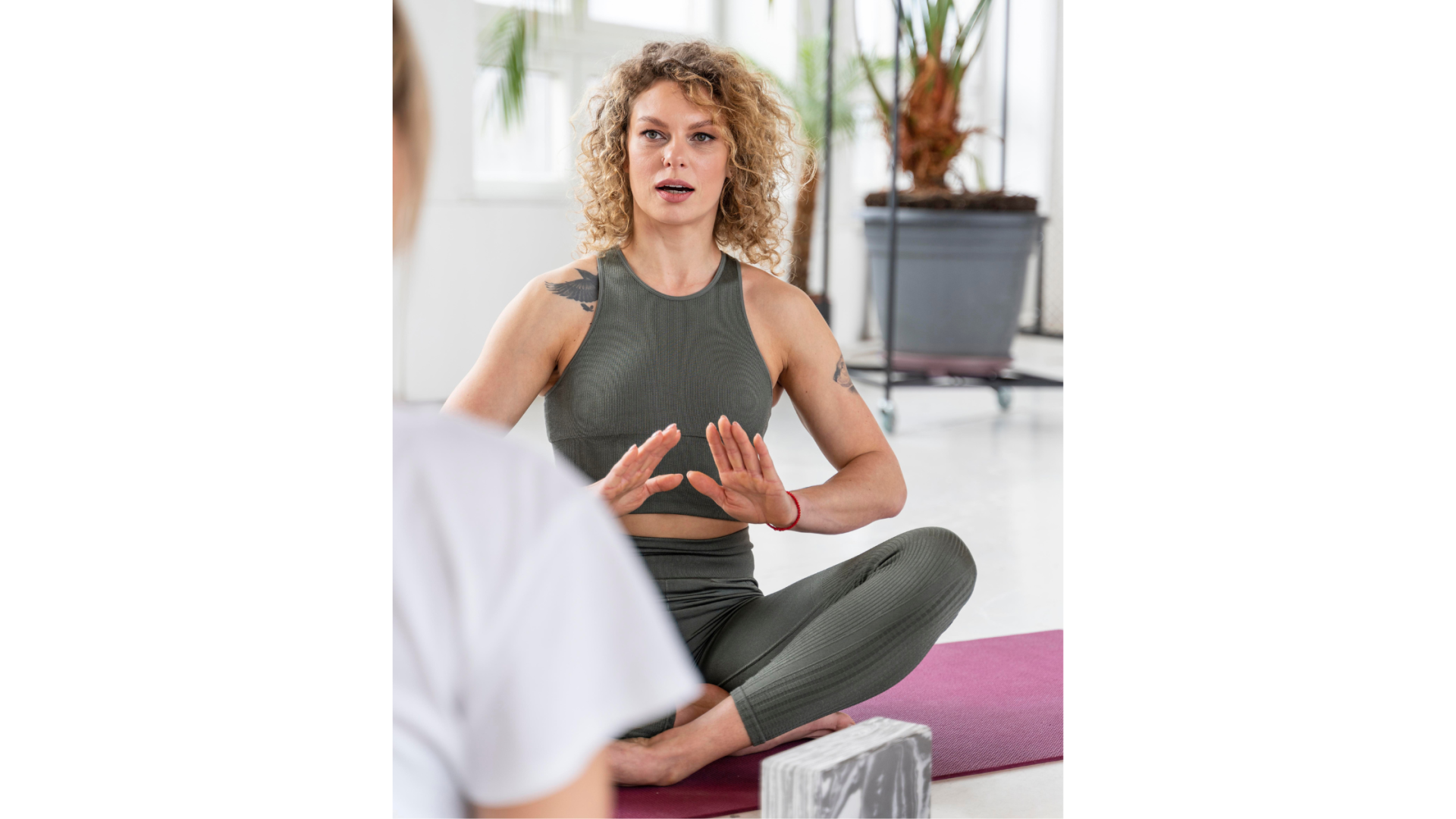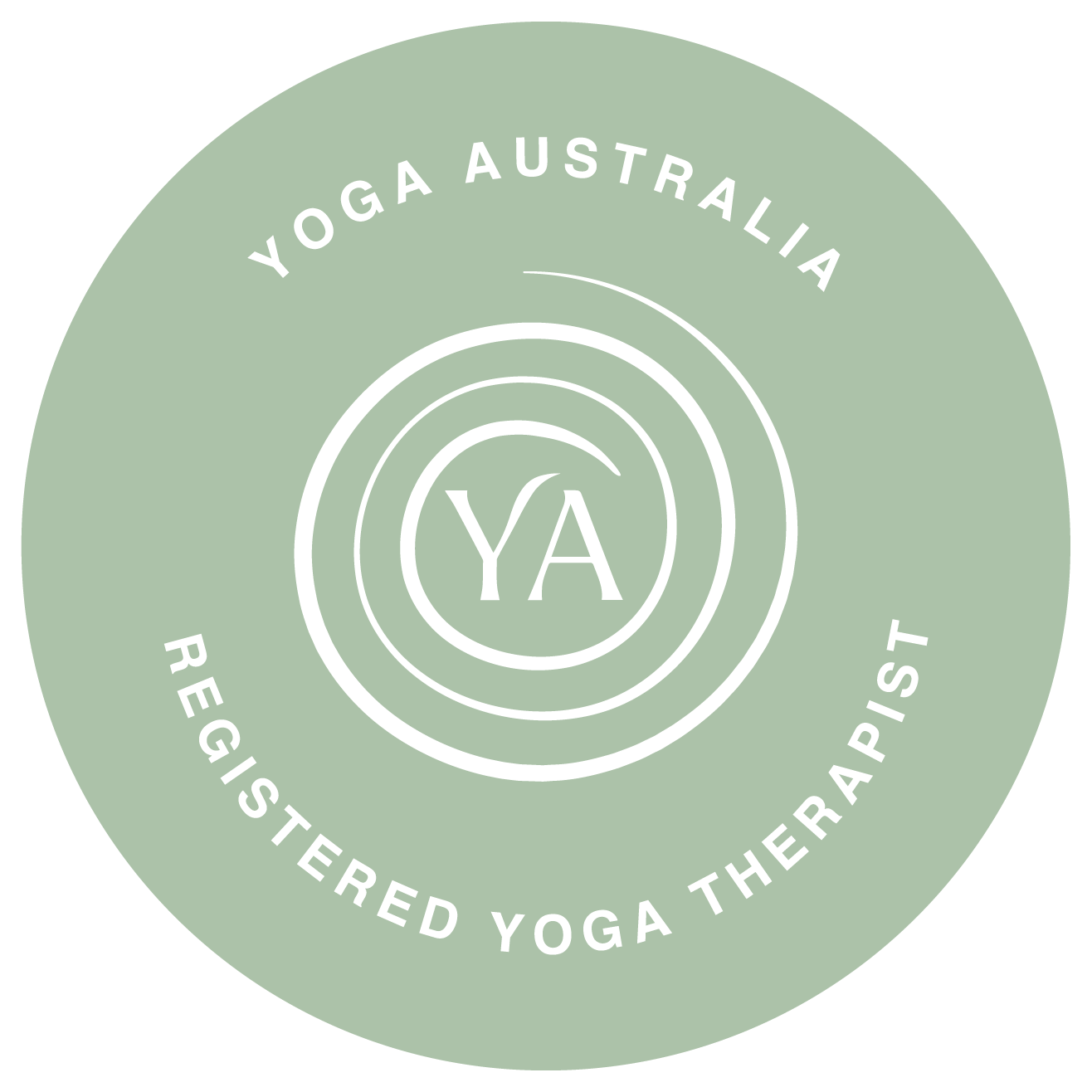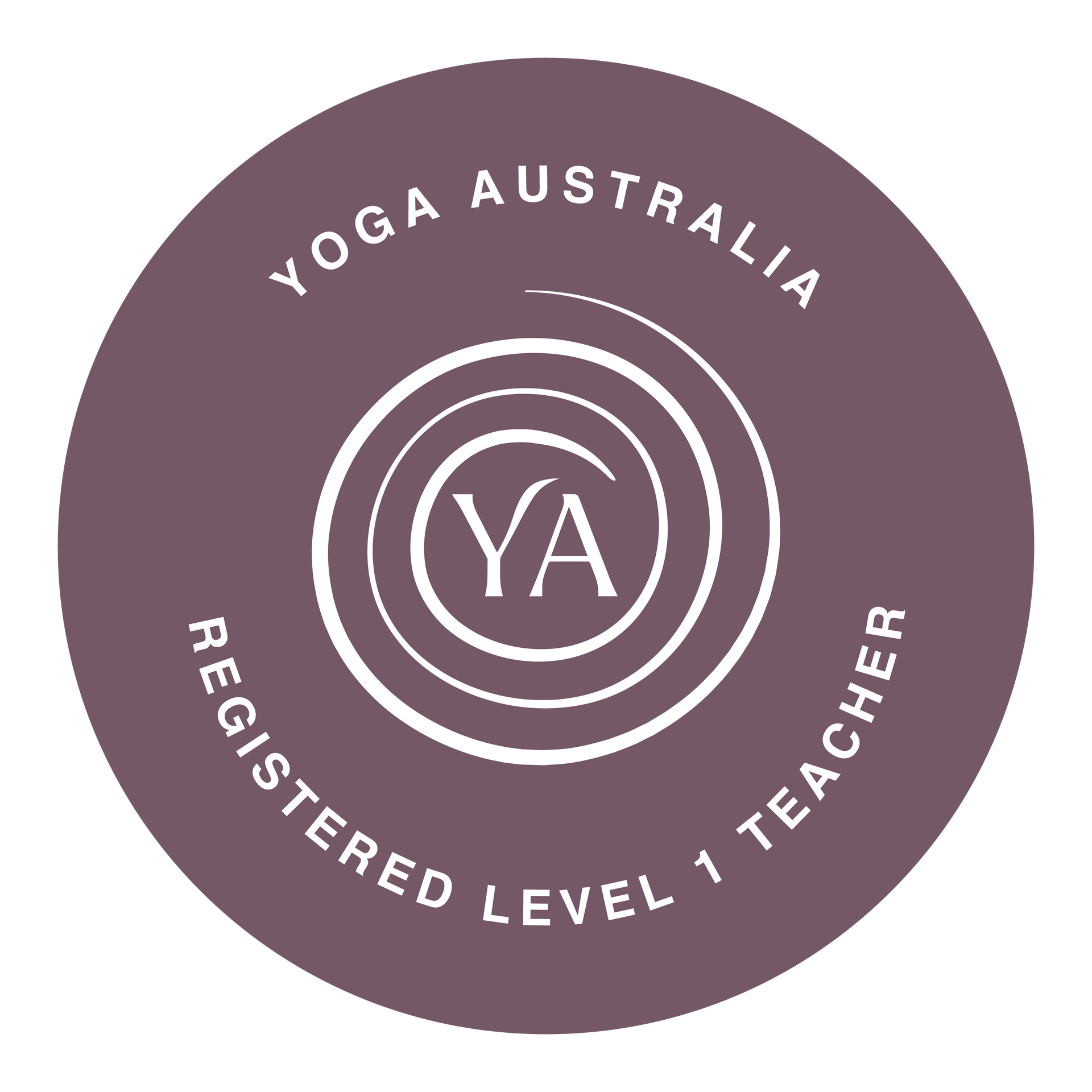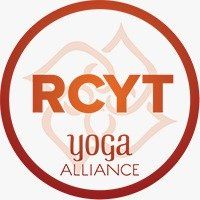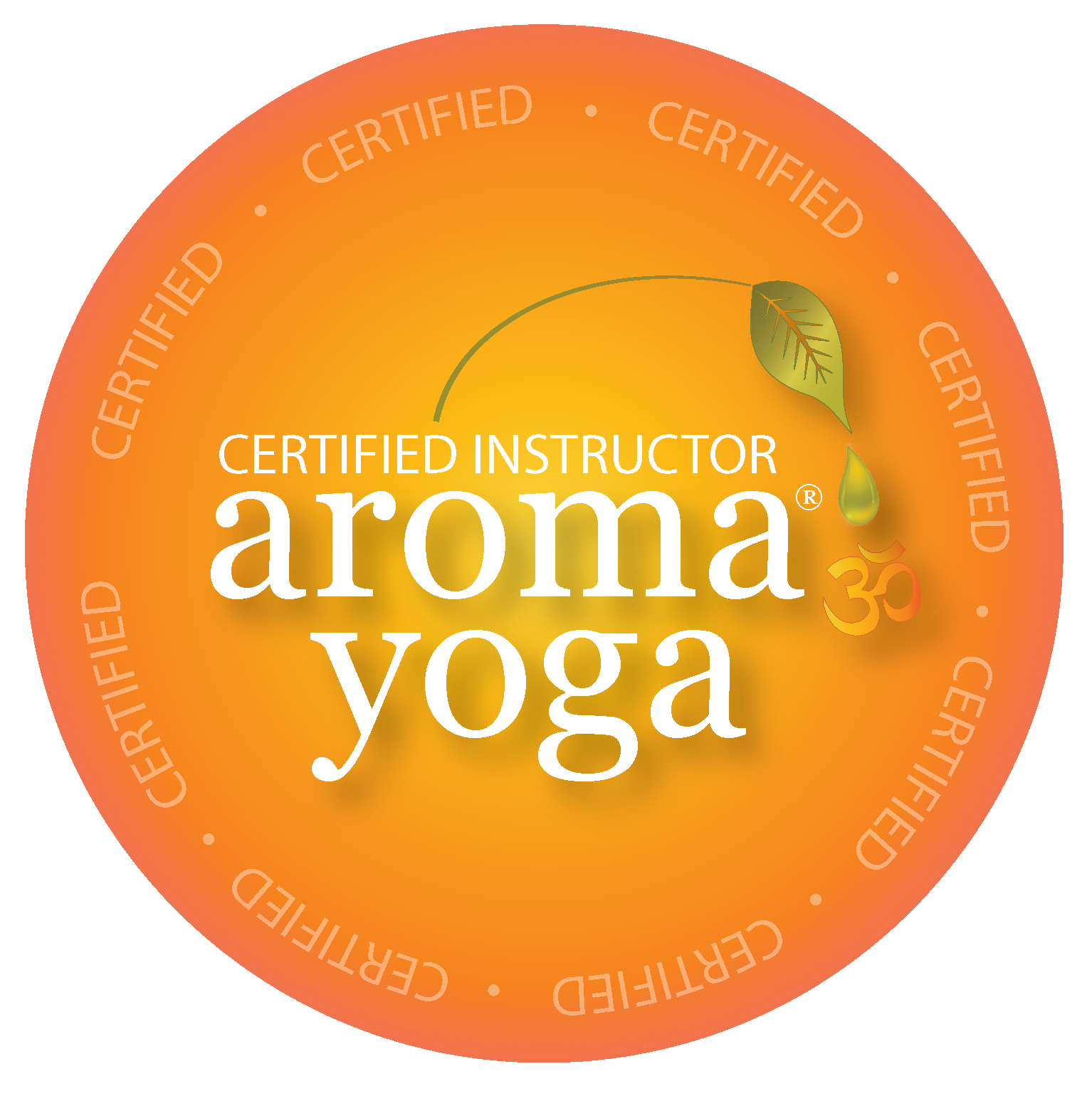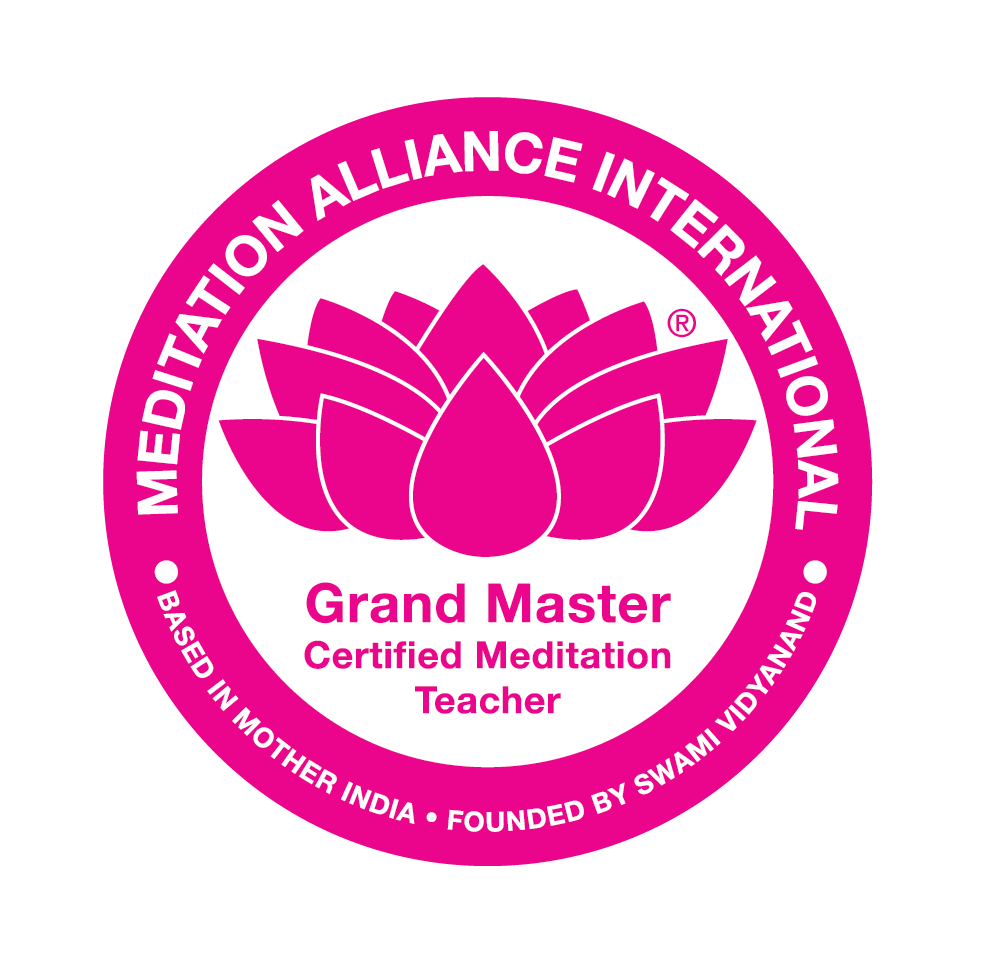What To Expect From A Yoga Therapy Session
It has been great to have people signing up to receive their free Yoga Therapy Sessions to assist me in completing my compulsory practicum hours for the Graduate Diploma in Yoga Therapy I am working through.
I thought I would share with you all some information on Yoga Therapy Sessions and what you can expect. Remember it is not too late to sign up, I still have a lot of hours I need to complete for the course. It is beneficial for my training to have various people, ages, goals and conditions to help me gain as much practical experience as possible.
What is Yoga Therapy?
According to the International Association of Yoga Therapists (IAYT), Yoga Therapy is defined as:
" The process of empowering individuals to progress toward improved health and well-being through the application of the philosophy and practice of Yoga."
Yoga Therapy is not a yoga class. In Yoga Therapy we use a variety of tools such as exercises, asanas, breathing techniques, relaxation techniques, diet and lifestyle suggestions and more. It encompasses a whole-body holistic approach, delivered through private, therapeutic sessions.
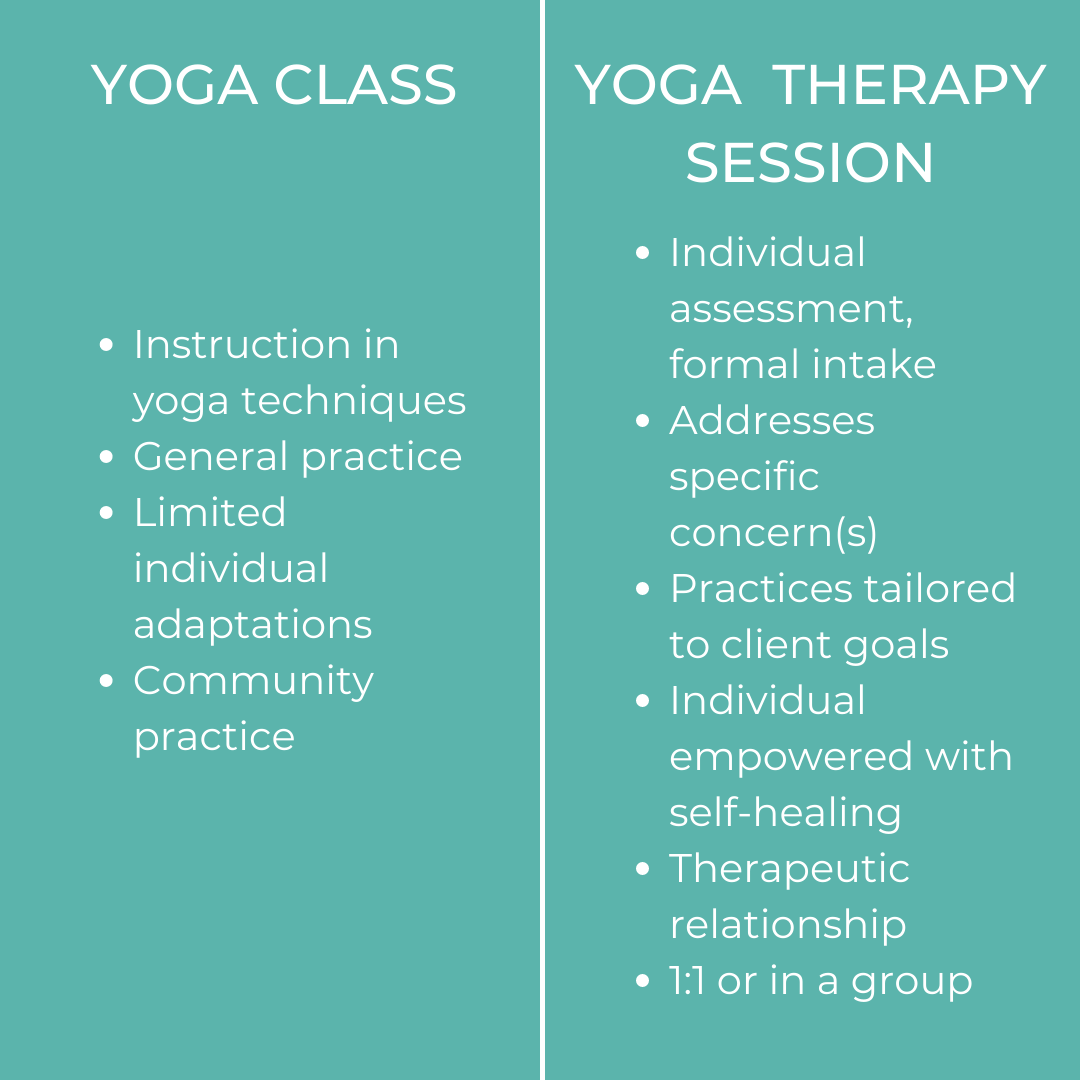
Before Your Yoga Therapy Session
When you express your interest in a Yoga Therapy session, I will forward you a Health Intake Form and Waiver, along with a Waiver from the Yoga School (Adore Yoga) I am completing the course through.
In Yoga Therapy, we look at the individual holistically; therefore, the more information we can collect, the better we can assist your individual needs and goals. This is a therapy session, it is not a yoga practice. Like other health modalities, the information we collect is vital in helping to provide the best care and support for you. Two people presenting with the same goals and conditions may have two very different supportive practices in their Yoga Therapy session, as we work with the whole person and tailor the practice accordingly.
When you return the forms to me, we can then book your first session.
What To Expect At Your First Yoga Therapy Session
The first Yoga Therapy session may run slightly longer than subsequent sessions, though this will depend on a variety of things. Each student is an individual with differing needs and goals so there will be variances in timings. Typically though, the first session may run between 60 - 75 minutes.
At this initial session, we will go through the paperwork you have returned to me. There may be points that need clarifying or I may ask additional questions to gain extra information. This may take up the majority of the first session, or it may be very brief. Depending on your goals, a physical assessment may also be done. Together we will determine which tools of yoga will benefit you the individual, and we will work out a practice to support your goals and one that will fit in to your routine and the time you have available for practice.
I will email you after our session with the practice we have developed, along with any relaxation recordings or other information we have discussed during our session. You will have everything you need to practice at home for the time you have decided is right for you.
Follow-Up Sessions
Follow-up sessions are generally about 60 minutes. At follow-up sessions we will go through the practice from your first session and see what helped and what may not have helped you. It might be a time to collect even more information. The follow-up session allows for progression in therapy where new postures or other yoga tools can be added in. Over time, if more than one goal was expressed, this is where we can also expand the therapy.
At the end of your first session, we will discuss when you would like to book your next session. This may be a week, a fortnight, a month or longer, depending on the individual.
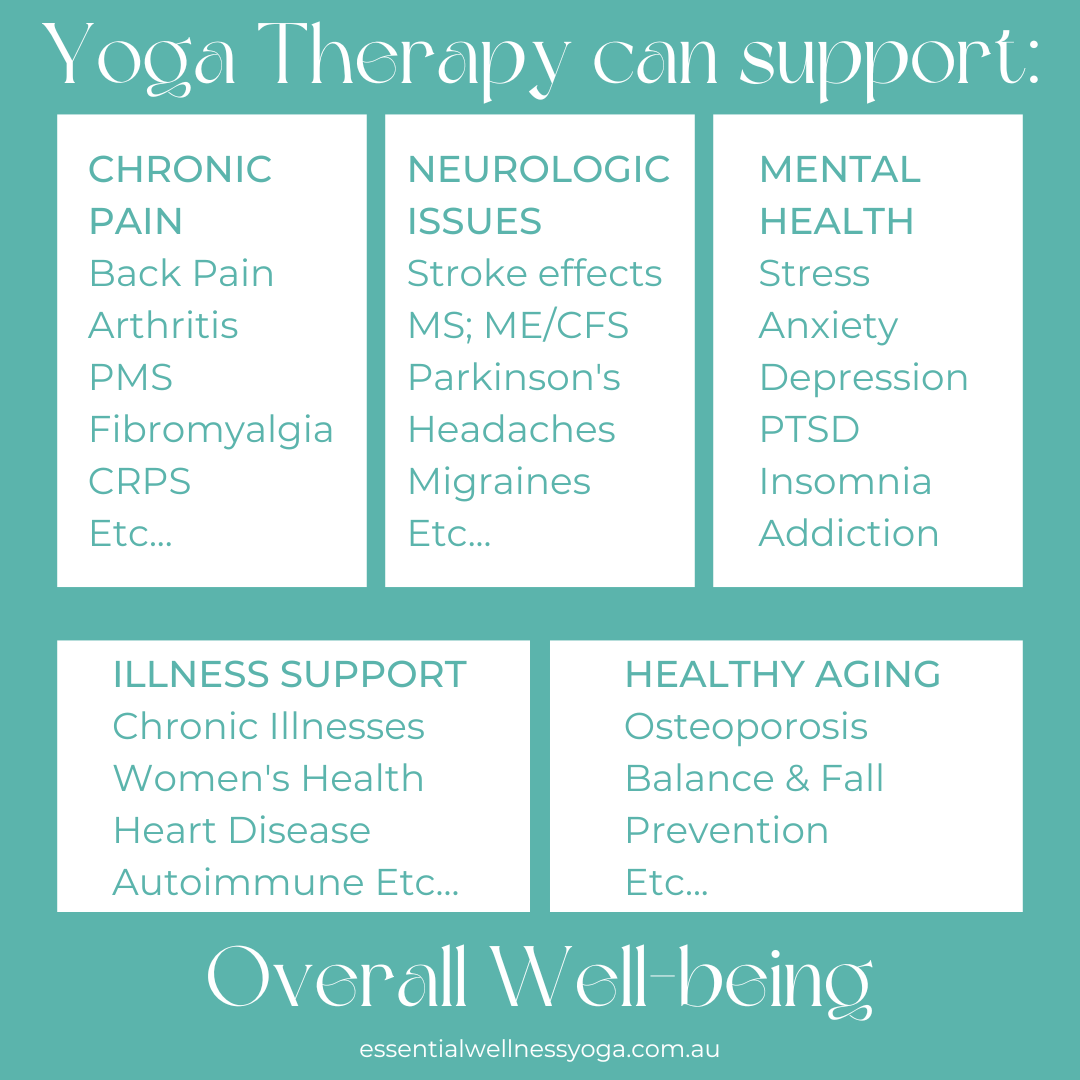
What Can Yoga Therapy Support?
Yoga Therapy can be used to support many health conditions, as well as support overall well-being. The list above is an example of how Yoga Therapy can help the individual. An important thing to note is that Yoga Therapy does not diagnose, nor does it claim to heal. Yoga Therapy is a holistic, complementary therapy that is not intended as a substitute for medical advice. It is intended to help the client empower themselves through the application of the teachings and practices of yoga, to support their recovery or well-being. It is perfect to be used along with other health modalities and should never be used as a replacement.
Yoga Therapy can support all ages, from children to seniors, all fitness and mobility levels. Yoga Therapy is available for all races and genders and is inclusive for all. No previous yoga experience is needed.
Yoga Therapy Tools
Yoga Therapy draws on a variety of yoga tools. We look holistically at the the whole person and use our training, knowledge and experience to draw on the most appropriate tools for the individual and the conditions presented. Some of the yoga tools used may include:
- Yoga poses (asanas)
- Relaxation techniques
- Mindfulness, visualisation and meditation techniques
- Sound techniques (mantras, voice, sounds, set phrases)
- Diet and lifestyle suggestions
- Breathing techniques (pranayama)
- Yoga philosophy - how the mind and body affect one another
- Ayurveda - the sister science of yoga
- Mudras (hand gestures that allow energy to move in a certain way through your body).
It is important to remember that each session is tailored to you. If there is an aspect of yoga that you do not feel comfortable with, then we will use other tools that do resonate with you. The sessions are for you and together we develop a practice that you are comfortable with. Sometimes though, stepping out of our comfort zone and exploring new techniques can be extremely beneficial. So please come with an open mind. Who knows, something you never thought you would like might turn out to be exactly what you need!
As a Yoga Therapist, I am very aware of my scope of practice. If there are issues that I feel can be better helped or supported by other allied health professionals, I will refer you to support our therapy. Yoga Therapy is designed to work alongside other health plans and practitioners, not in place of them.
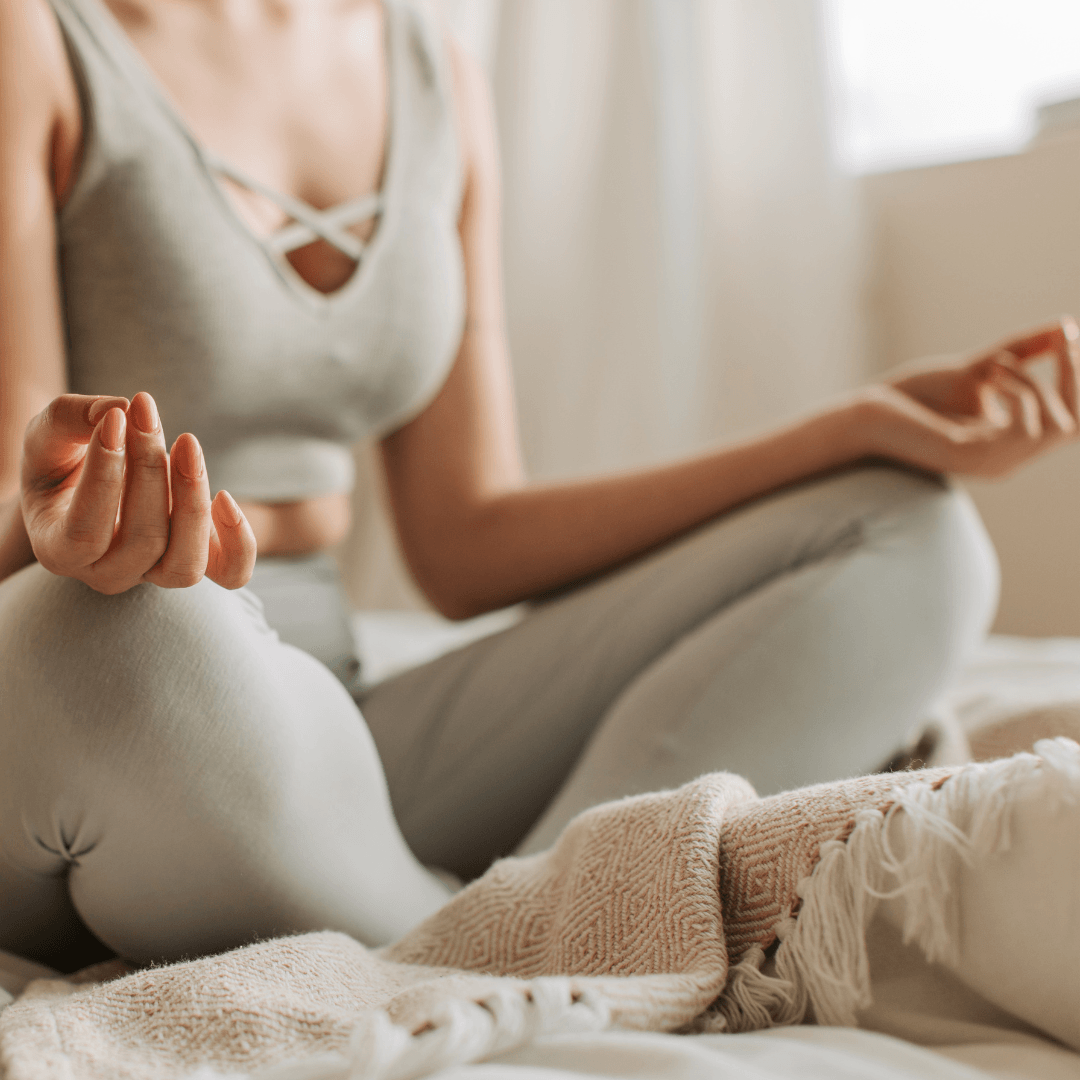
Benefits of Yoga Therapy
Yoga Therapy has many benefits for the physical, emotional, mental, energetic and spiritual body. Some of these benefits include:
- Illness support - such as better managing and dealing with illnesses like diabetes, cancer, autoimmune disease, digestive issues, fatigue and heart disease, as well as strength and stamina
- Chronic pain support - learning to better manage chronic pain conditions such as Fibromyalgia, Complex Regional Pain Syndrome, Chronic Fatigue Syndrome (ME/CFS) and the associated issues related to this
- Supporting mental health - better manage and overcome stress, depression, anxiety, insomnia, addictions, eating disorders
- Supporting neurological conditions - the symptoms caused by stroke, multiple sclerosis (MS), Parkinson’s disease, traumatic brain injury (TBI), and other neurological conditions, ADHD, Autism
- Supporting overall well-being - providing tools for people who don’t have a particular health problem, but are looking to reach their highest human potential
- Managing key life transitions such as changes in career, receiving a health diagnosis, becoming a parent or caregiver, moving or changes in relationships
- Manage physical issues in your body such as rehabilitation from an injury or surgery, back, neck, leg (knees, ankles) and pelvis issues, wrist issues
- Support and manage healthy ageing for example balance and fall prevention, osteoarthritis, osteoporosis, accepting life changes at this stage of life, strength and stamina
- Supporting and managing mental and physical disabilities
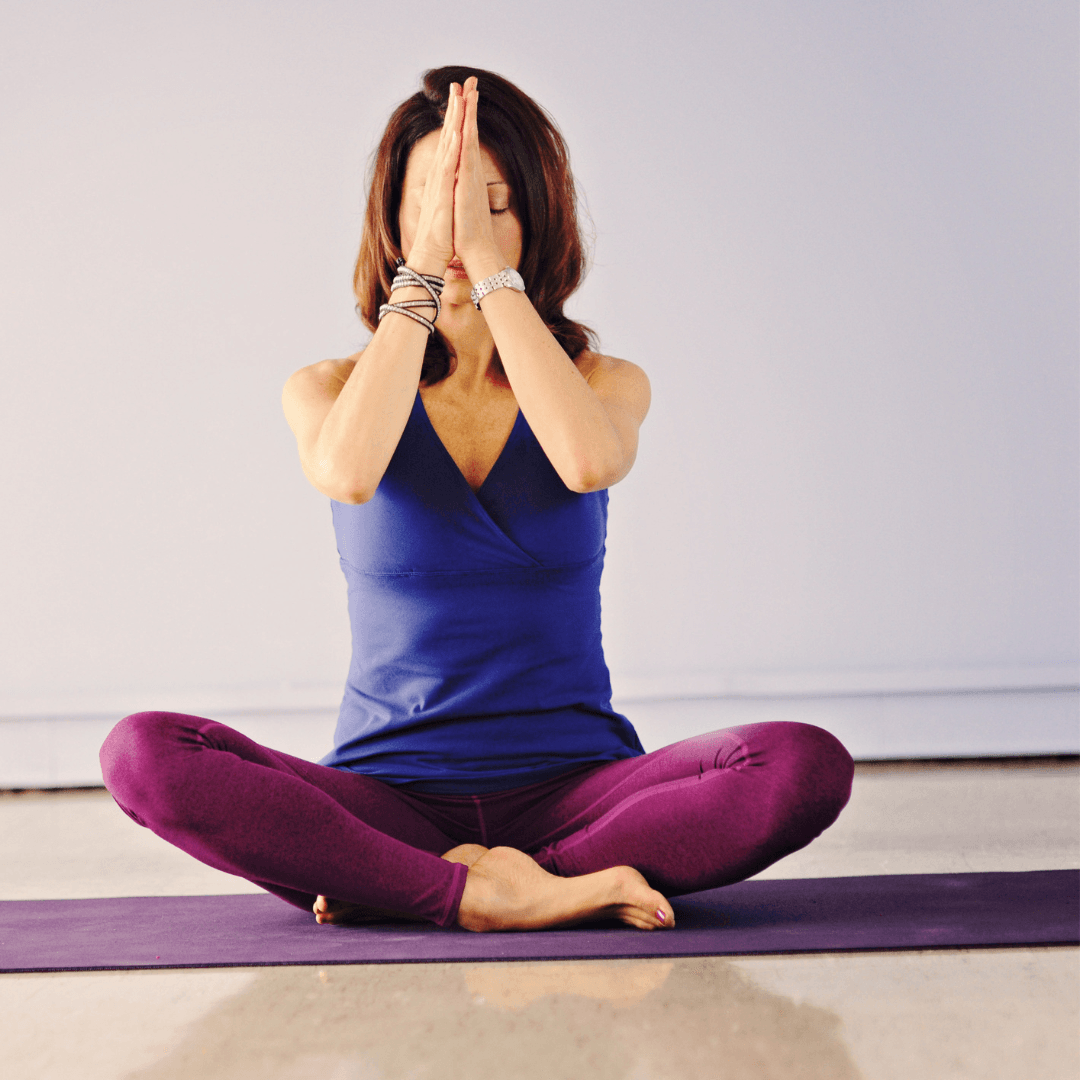
If you would like to try a Yoga Therapy Session, click the 'Contact Me' button below and register your interest. I will forward you the forms required to start the process and then we can book your first session.
If you have already returned your forms and would like to book your session, click the 'Book Your Yoga Therapy Session' button below.
If you have any questions, please contact me.
Thank you for your support in my ongoing journey.
